
|
On: 2012-12-11 14:09:25
Terri-Lynn Penney changed content of section xcf5skf6ugz22kiabn to
|
|
|
i am learn i but HIV when you have HIV you need to go to the clinic and get tested when positive you need to use condom i love that thing because tell me meaning things.
i enjoyed the show because give as lesson
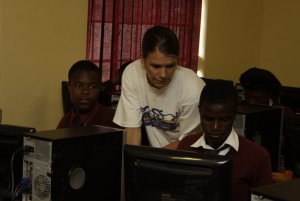
(image not found)

|
On: 2012-12-11 12:42:13
Terri-Lynn Penney deleted section
|
|
|
n8qv4keb3me3tkuw33

|
On: 2012-12-11 12:19:44
Terri-Lynn Penney changed content of section xcf5skf6ugz22kiabn to
|
|
|
i am learn i but HIV when you have HIV you need to go to the clinic and get tested when positive you need to use condom i love that thing because tell me meaning things.
i enjoyed the show because give as lesson
(image not found)

|
On: 2012-12-11 11:58:10
Terri-Lynn Penney changed the project abstract to:
|
|
|
The theme of the Rhodes AIDS Day was "Getting to Zero" A talk given by Judge Cameron how He has lived with Aids for years and how he overcame the fear to hide hes status away and how it took courage to reveal hes status and how he openly talks about he Status towards other people.A very motivational and inspiring talk.A performance by Ubom Dance group was also attend a performance that Expressed HIV/AIDS.
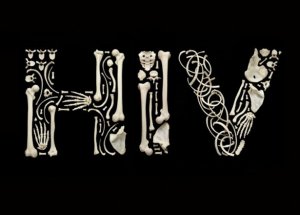

|
On: 2012-12-11 11:53:28
Terri-Lynn Penney changed the project abstract to:
|
|
|
The theme of the Rhodes AIDS Day was "Getting to Zero" A talk given by Judge Cameron how He has lived with Aids for years and how he overcame the fear to hide hes status away and how it took courage to reveal hes status and how he openly talks about he Status towards other people.A very motivational and inspiring talk.A performance by Ubom Dance group was also attend a preformance that Expressed HIV/AIDS.


|
On: 2012-12-11 11:41:25
Terri-Lynn Penney changed content of section hlttc8pnkohs3x9zzk to
|
|
|

AIDS is the sixth leading cause of death among people ages 25 - 44,
Human immunodeficiency virus (HIV) causes AIDS. The virus attacks the
immune system and leaves the body vulnerable to a variety of
life-threatening infections and cancers.HIV has been found in saliva,
tears, nervous system tissue and spinal fluid, blood, semen.
The virus can be spread (transmitted):
Through sexual contact -- including oral, vaginal, and anal sex
Through blood -- via blood transfusions (now extremely rare in the U.S.) or needle sharing
From
mother to child -- a pregnant woman can transmit the virus to her fetus
through their shared blood circulation, or a nursing mother can
transmit it to her baby in her breast milk
Other methods
of spreading the virus are rare and include accidental needle injury,
artificial insemination with infected donated semen, and organ
transplantation with infected organs.
AIDS is NOT transmitted to a person who DONATES blood or
organs. People who donate organs are never in direct contact with people
who receive them. Likewise, a person who donates blood is never in
contact with the person receiving it. In all these procedures, sterile
needles and instruments are used.
However, HIV can be
transmitted to a person RECEIVING blood or organs from an infected
donor. To reduce this risk, blood banks and organ donor programs screen
donors, blood, and tissues thoroughly.
People at highest risk for getting HIV include:
Injection drug users who share needles
Infants born to mothers with HIV who didn't receive HIV therapy during pregnancy
People engaging in unprotected sex, especially with people who have other high-risk behaviors, are HIV-positive, or have AIDS
People
who received blood transfusions or clotting products between 1977 and
1985 (before screening for the virus became standard practice)
Sexual partners of those who participate in high-risk activities (such as injection drug use or anal sex)
Symptoms
AIDS begins
with HIV infection. People who are infected with HIV may have no
symptoms for 10 years or longer, but they can still transmit the
infection to others during this symptom-free period. If the infection is
not detected and treated, the immune system gradually weakens and AIDS
develops.
Acute HIV infection progresses over time (usually a few weeks to months) t(no symptoms) and then to early symptomatic HIV infection.
Almost all people infected with HIV, if they are
not treated, will develop AIDS. There is a small group of patients who
develop AIDS very slowly, or never at all. These patients are called
non progressors, and many seem to have a genetic difference that prevents
the virus from significantly damaging their immune system.
The
symptoms of AIDS are mainly the result of infections that do not
normally develop in people with a healthy immune system. These are
called opportunistic infections.
People with AIDS have had their
immune system damaged by HIV and are very susceptible to these
opportunistic infections. Common symptoms are:
Note:
At first, infection with HIV may produce no symptoms. Some people,
however, do experience flu-like symptoms with fever, rash, sore throat,
and swollen lymph nodes, usually 2 - 4 weeks after contracting the
virus. This is called the acute retro viral syndrome. Some people with
HIV infection stay symptom-free for years between the time when they are
exposed to the virus and when they develop AIDS.

|
On: 2012-12-11 11:40:27
Terri-Lynn Penney changed content of section 9uvdxi5sigqxbye55y to
|
|
|
A special address given by Constitutional Court Justice Edwin Cameron
Topic:"Four Big issues in AIDS:prevention,testing,treatment and
stigma-a Judges personal perspective.
A very personal but rewarding talk was delivered by Judge Cameron talking from a personal experiences and from the heart.He opened up towards the audience and told them he was GAY and was HIV positive.He lived with a STIGMA for a few years to ashamed to tell anyone about it.
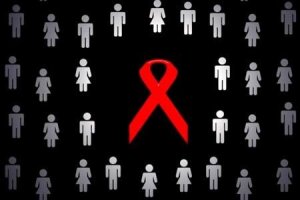

|
On: 2012-12-10 14:41:47
Terri-Lynn Penney changed content of section jucq7ihh1mpx9g466q to
|
|
|
Constitutional Court Judge Edwin Cameron
is regarded around the world as an inspirational figure for his work
in human rights activism, championing gay and lesbian equality, and
his outspoken stance on HIV/Aids.
Edwin was born in Pretoria in 1953 and finished his schooling at
Pretoria Boys High. He was able to study at Stellenbosch University
after receiving the Anglo-American Corporation Open Scholarship
award, and went on to complete his BA Law degree and Honours in
Latin.
Judge Edwin Cameron started of he talk by telling us worlds Aids
Day is on the 1 December we need to raise awareness and know our
Status. Judge Cameron was diagnose with Aids in the early
“80” he was Guy and was very shock when he got to know he’s
status. He develop a STIGMA(meaning A mark of disgrace associated
with a particular circumstance, quality, or person: "the stigma
of mental disorder".) about hes fatal disease and felt ashamed
to have this disease.
Why was he feeling ashamed?Because he was guy and fought this deep
secret until he was 40.He kept quite about having this disease and
felt ashamed. He started working for HIV/AIDS Assisting Mine workers
wife’s that’s partners we positively diagnosed telling them they
felt ashamed and of having HIV developed a Stigma a eternal stigma
way inside themselves.
Judge Cameron started speaking about he’s disease after 3 years
to family and friends it was tough going speaking about he’s
status. In 1997 he became very ill he lost 10-14kg had terrible
Ammonia,Gastric Flu and thrush in he’s mouth. In 1996 the first
ARV s were made available but at great cost. Judge Cameron said he
use to earn R12 000 a month in that as a judge and R4000 a month was
just spent on ARVs within 2 years he was so much healthier and he had
he’s life back. Today he celebrate 15 years of good health!
Judge Cameron went on to say to prevent HIV you have to be tested
1.7 million receive treatment and most people get treatment from
the government hospitals and clinics. Stigmas are dropping we need to
talk about HIV because not enough people are talking about HIV. The
life expectation of people living with HIV are that are on ARVs are
living the same Life span then normal people not effected with HIV.
He ended off by saying “Stand together talk about the fact talk
about prevention,treatment and encourage others to be tested lesson
Social Solidarity!
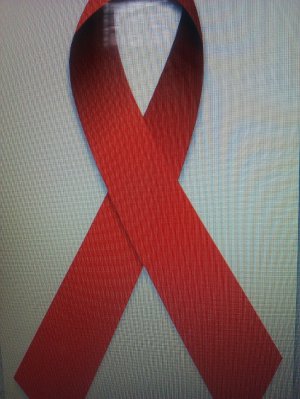

|
On: 2012-12-10 14:39:07
Terri-Lynn Penney changed content of section 6q4hx3npiskhbgaj5s to
|
|
|
(A piece Taken From the Gauteng Personalities)
Constitutional Court Judge Edwin Cameron is regarded around the
world as an inspirational figure for his work in human rights
activism, championing gay and lesbian equality, and his outspoken
stance on HIV/Aids.
Edwin was born in Pretoria in 1953 and finished his schooling at
Pretoria Boys High. He was able to study at Stellenbosch University
after receiving the Anglo-American Corporation Open Scholarship
award, and went on to complete his BA Law degree and Honours in
Latin.
His brilliant legal mind truly came to the fore during his studies
at Oxford University in 1976, where he obtained a BA in Jurisprudence
with first class honours, the Jurisprudence Prize, Bachelor of Civil
Law with first class honours, and the Vinerian Scholarship. Not
stopping there, Edwin later attained his LLB from the University of
South Africa cum laude, and was awarded the Johannes Voet
Medallion for Best Law Graduate.
After he was appointed South African High Court judge by Nelson
Mandela in 1994, Edwin took a brave step in publicly admitting his
homosexuality and HIV-positive status. He was largely inspired to do
so because of the widespread negative stigma attached to the disease,
where millions of people suffering from Aids were needlessly
condemned by society.
Edwin later wrote his critically acclaimed and prize-winning
memoire Witness to Aids, in which he debunks myths about the
disease and expresses his anger at the fact that he, on a judge’s
salary, can afford treatment and medication while so many others are
condemned to die just because they are poor.
His work in promoting gay and lesbian equality also went a long
way to help secure the inclusion of sexual orientation in the South
African Constitution.
Edwin has been acknowledged for these and many other achievements
by being given the Nelson Mandela Award for Health and Human Rights,
the Transnet HIV/AIDS Champions Award, induction as an Honorary
Fellow of the Society for Advanced Legal Studies in London, the
special award by the Bar of England and Wales for “contribution to
international jurisprudence and protection of human rights”, and
many others.
He was also invited as a keynote speaker at the XII International
Conference on HIV/AIDS in Durban, and was invited to deliver an
inaugural lecture for the British Academy in London.
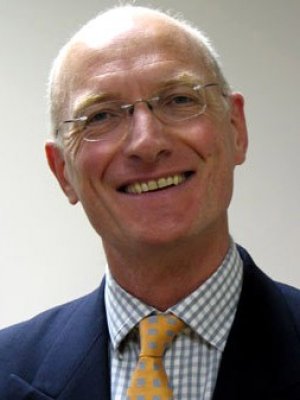

|
On: 2012-12-10 13:43:17
Terri-Lynn Penney changed content of section xcf5skf6ugz22kiabn to
|
|
|
i am learn i but HIV when you have HIV you need to go to the clinc and teast when posetive you need to yourz condomu i love that thing becouse tell me meani things.
i am joning that show becouse give as lesern

